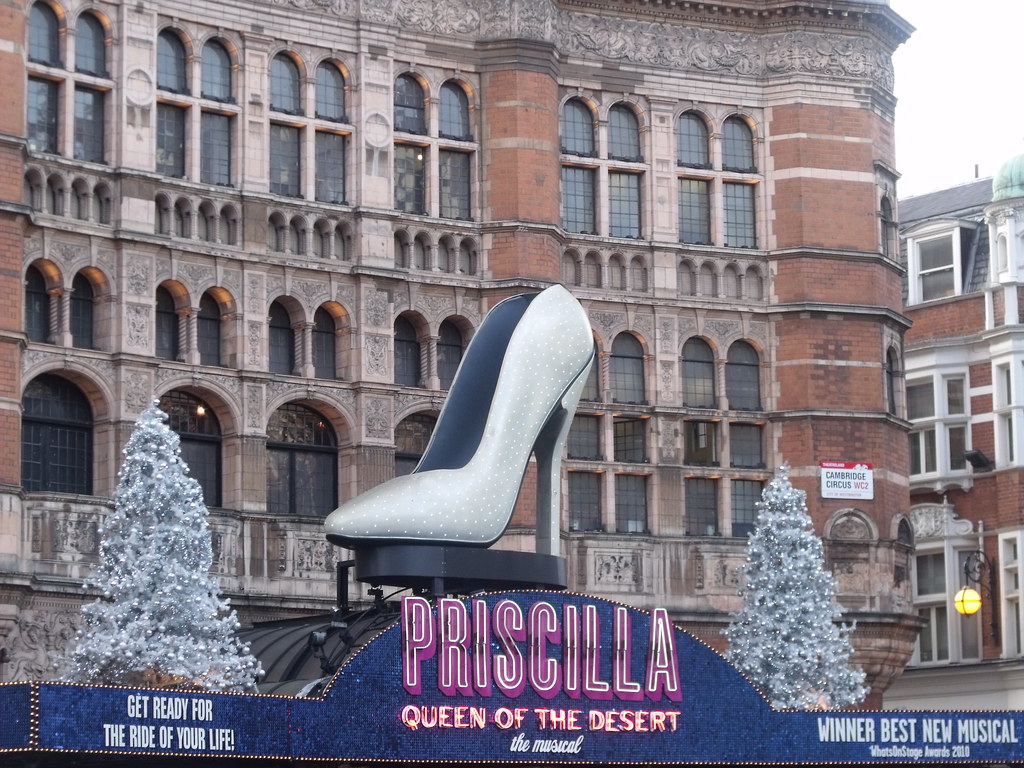Have you ever found yourself staring at your computer screen, feeling lost and unsure of where to start with your music production? Whether it’s been a few months or even years since you last produced music, getting back into the groove can be daunting. But fear not! In this post, we have compiled 10 essential tips to help you get back into music production and reignite your passion for creating music. From finding inspiration to setting goals, these tips will guide you towards success in your music production journey. So, let’s dive in and get started!
Table of Contents

Why Taking a Break from Music Production is Normal
Taking a Break from Music Production is not uncommon, whether it’s due to job obligations, family responsibilities or just feeling burnt out. It’s important to understand that stepping away from music production can be beneficial for your mental and emotional well-being in the long run. However, getting back into it can seem daunting at first. The key is to take it slow and steady. Rushing into things may result in more frustration than inspiration.
One thing you may notice upon returning is that technology has advanced significantly since you last produced music regularly. This can initially feel overwhelming but don’t let this discourage you! Take the time to familiarize yourself with new software updates and techniques; often these changes could help inspire different sounds or offer shortcuts previously unavailable.
Remember why you started making music in the first place – was it for pure enjoyment? To express yourself creatively? To connect with an audience on a deeper level? Whatever the reason may be, focus on this as your foundation before diving back into production mode.

Setting Realistic Goals for Your Return to Music Production
It’s important to set realistic goals when getting back into music production after a break. Don’t expect to immediately create your greatest masterpiece upon returning. Start small and work your way up. Consider setting daily or weekly goals for practicing, experimenting with new sounds, or finishing a certain section of a track. It can also be helpful to focus on learning new skills or techniques rather than solely focusing on the end product.
Additionally, time management is crucial when trying to get back into music production. Make sure you schedule time each day or week for working on music and stick to it as much as possible. Avoid procrastination by breaking down tasks into smaller steps and tackling them one at a time.
Remember that returning to music production is not about being perfect right away but rather enjoying the creative process and gradually improving over time. Stay patient and consistent in your efforts, and success will come with dedication and hard work.

Tips for Finding Inspiration and Creativity Again
Finding inspiration and creativity again can be a daunting task, especially if you’ve been away from music production for a while. One important key phrase to keep in mind is to not force it. Inspiration can come from anywhere, so don’t limit yourself to just one source. Try listening to different genres of music, attending live shows, or even taking a walk outside. Another important key phrase is to collaborate with others. Working with other musicians or producers can bring fresh ideas and perspectives to your work. Don’t be afraid to reach out and connect with others in the industry. Additionally, experimenting with new sounds or techniques can also spark creativity. Don’t be afraid to try something new and see where it takes you. Remember, creativity is a process and it’s okay if it takes time to get back into the swing of things.
Updating Your Equipment: What You Really Need
Assessing Your Current Setup: What Can Stay and What Needs to Go
When getting back into music production, it’s important to assess your current setup with a critical eye. Identify which equipment is still relevant and functional, and which needs an upgrade or replacement. Don’t get drawn in by flashy gear that won’t necessarily improve your output, instead prioritize what will actually benefit you the most. Consider investing in quality headphones for accurate monitoring of audio levels, a reliable audio interface for recording and playback, as well as upgrading your DAW software if necessary. Remember to stay within budget while keeping in mind that the right equipment can make all the difference in producing high-quality tracks.
The Must-Haves: Investing in Key Equipment for Modern Music Production
Investing in the right equipment is crucial for anyone who wants to get back into music production. While you don’t need to spend a fortune on gear, it’s essential to have certain must-haves that will allow you to create high-quality tracks. First and foremost, invest in a reliable computer with enough processing power and storage space. A solid audio interface and decent studio monitors are also essential for accurate sound reproduction. Additionally, having a MIDI keyboard or controller can greatly enhance your workflow and creativity in the music-making process. Don’t forget about software – investing in industry-standard Digital Audio Workstations (DAWs) such as Ableton Live or Logic Pro X can take your productions to new heights while keeping up with modern production standards.
Upgrading on a Budget: Finding Affordable Alternatives without Sacrificing Quality
When getting back into music production, upgrading your equipment may be necessary. However, it doesn’t have to break the bank. Look for affordable alternatives that still offer quality. For example, instead of buying a brand new MIDI controller, consider purchasing a used one in good condition. You can also save money by investing in software plugins instead of expensive hardware. Don’t forget to research and compare prices before making any purchases. With a little bit of effort, you can upgrade your equipment without sacrificing the quality of your music production.
Streamlining Your Workflow: Choosing the Right Tools to Boost Efficiency
When updating your equipment for music production, it’s important to choose tools that will boost efficiency and streamline your workflow. Look for software and hardware that will help you work faster and more effectively. For example, a MIDI controller can help you play and record virtual instruments more easily, while a high-quality audio interface can improve the sound quality of your recordings. Consider investing in plugins or software that will automate repetitive tasks or help you quickly achieve the sound you’re looking for. By choosing the right tools, you can make the most of your time and get back into music production with confidence.

Staying Organized: Time Management Strategies in Music Production
Prioritizing Tasks: A Key Time Management Strategy for Music Producers
One of the biggest struggles for music producers, especially those who are returning after a break, is managing their time effectively. Prioritizing tasks is a key strategy that can help you make the most out of your time and get back into music production with ease. It’s important to identify which tasks are urgent and require immediate attention and which can wait until later. By doing so, you’ll be able to focus on what’s most important first while still making progress on less pressing projects. This approach will not only keep you organized but also reduce stress levels as well. Remember: prioritization is key!
Streamlining Your Workflow: Tips for Efficient Music Production
One of the biggest challenges in music production is managing your time effectively. To maximize your productivity, it’s important to streamline your workflow. This means identifying the most time-consuming tasks and finding ways to automate or simplify them. For example, creating templates for commonly used instruments or effects can save you a lot of time in the long run. Another key strategy is to prioritize your tasks and focus on the most important ones first. By staying organized and efficient, you can make the most of your time and get back into music production with confidence.
Creating a Schedule: How to Stay on Track with Your Music Production Goals
Creating a schedule is crucial to staying on track with your music production goals. Time management is key when it comes to balancing your personal life and music production. Start by setting aside specific times each week dedicated solely to music production. Treat these times as you would any other important appointment or meeting. Use a planner or calendar to map out your schedule and stick to it as much as possible. Remember to also give yourself breaks and time for rest, as burnout can hinder your productivity. Consistency is key, so make sure to establish a routine that works for you and stick with it.
The Importance of Taking Breaks: Avoiding Burnout in Music Production
Taking breaks is crucial to avoid burnout in music production. It’s easy to get lost in the creative process and lose track of time, but overworking yourself can lead to exhaustion and decreased productivity. Time management is key in ensuring that you take breaks regularly. Set a timer for every hour or two and step away from your work station for a few minutes. Use this time to stretch, grab a snack, or simply clear your mind. Mental health is just as important as physical health, and taking breaks can help you maintain both. Remember, quality work comes from a healthy and rested mind.

Overcoming Mental Blocks and Frustration When Returning to Music Production
Overcoming mental blocks and frustration is a common challenge when returning to music production. It’s easy to feel overwhelmed by the sheer amount of work that needs to be done, or to feel like you’re not making progress as quickly as you’d like. One way to combat this is to break down your tasks into smaller, more manageable chunks. Instead of trying to write an entire song in one sitting, focus on writing just one section or coming up with a melody. Celebrate each small victory along the way, and don’t be too hard on yourself if things don’t come together right away.
Another helpful strategy is to seek out feedback from others. Share your work with friends or fellow musicians and ask for their honest opinions. This can help you gain new perspectives on your music and identify areas where you can improve. Additionally, consider taking breaks when you need them. Sometimes stepping away from your work for a little while can help you come back with fresh ideas and renewed energy.
Remember that getting back into music production is a process, and it’s okay if it takes some time to get back into the swing of things. Stay patient, stay positive, and keep working at it consistently. With time and effort, you’ll find yourself making progress and creating music that you’re proud of once again.
In conclusion, getting back into music production after taking a break can be challenging, but it’s important to remember that it’s normal to experience some difficulties. By setting realistic goals, finding inspiration and creativity, updating your equipment, staying organized with time management strategies, and overcoming mental blocks and frustration, you can make a successful return to music production. Remember to take it one step at a time and be patient with yourself. And if you’re looking for more tips and advice on music production, be sure to check out our other content!
Questions and Answers
Who should use these tips for getting back into music production?
Anyone who has taken a break from producing and wants to jump back in.
What is the first step in getting back into music production?
Start by organizing your workspace and equipment for maximum efficiency.
How can I find inspiration for my music production after a break?
Listen to new music, collaborate with other producers, and attend music events.
What if I feel like I’ve lost my touch in music production?
Take it slow, practice regularly, and don’t be too hard on yourself.
How can I balance music production with other responsibilities?
Create a schedule, set realistic goals, and prioritize your time effectively.
What if I don’t have the same equipment as before for music production?
Don’t worry, use what you have and focus on improving your skills rather than gear.


